I went to Thailand to visit Moo Deng and she has a secret we all missed
She is perhaps the most famous creature in the world right now. But after a recent visit to Thailand, I found out a sad truth about Moo Deng.
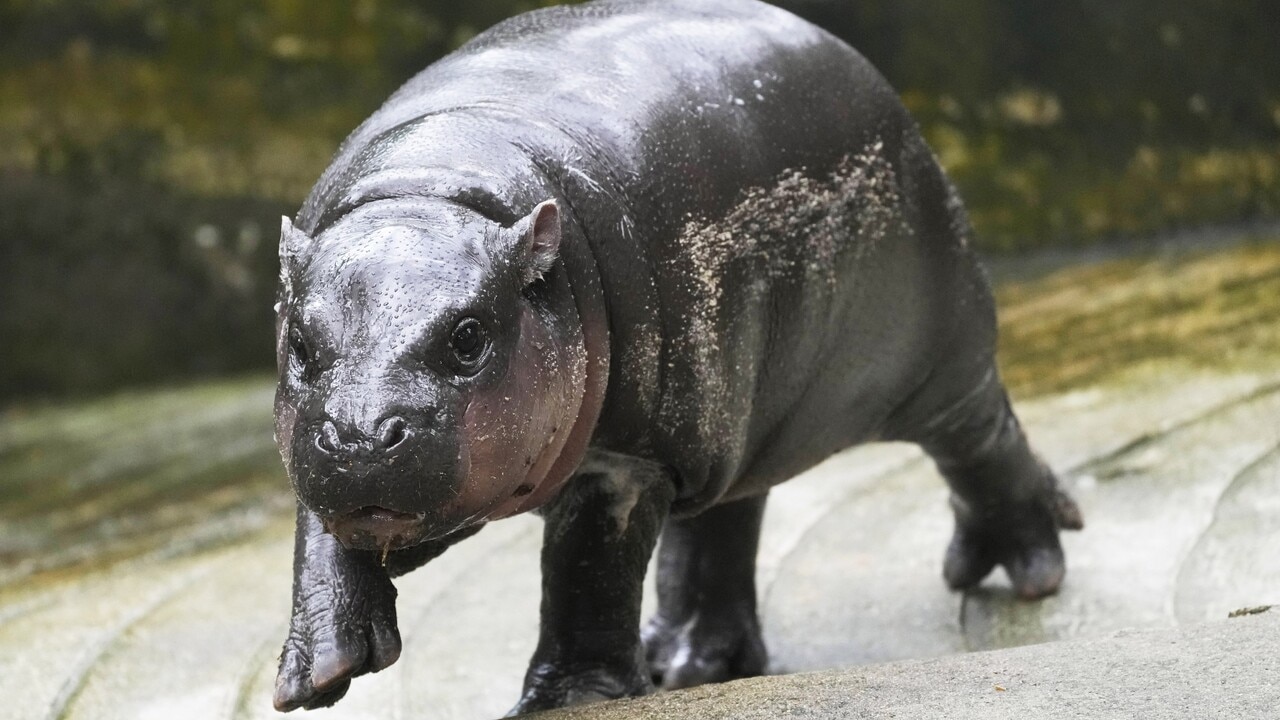
Moo Deng has captured hearts around the globe for her funny antics, larger than life personality and ridiculously adorable face.
The viral three-month old pygmy hippo from Thailand is everywhere — and she’s earning big bucks.
She’s launched countless memes, merchandise and fan pages. Saturday Night Live has parodied her meteoric rise to fame, comparing her to Chappell Roan. She even has a Bitcoin named after her.
Without question this ‘bouncing pig’ is an international star.
So, what’s it like seeing the celebrity hippo in real life? I travelled to Khao Kheow Open Zoo in Thailand to find out.
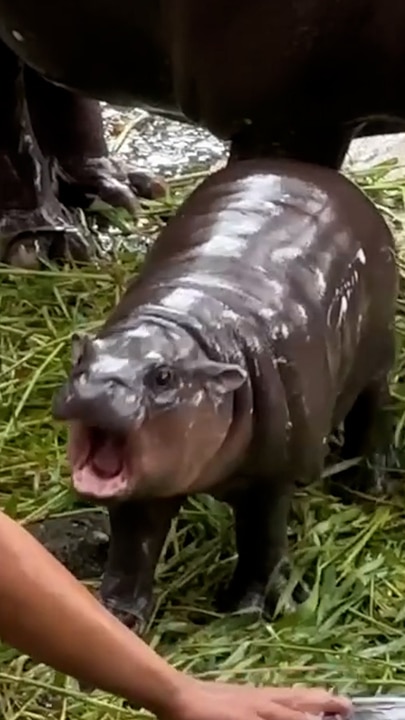
The atmosphere in the zoo was electric. Children were running and laughing, excitedly shouting to each other in Thai. I couldn’t understand what they were saying aside from two very distinct words which were uttered loudly and often: Moo Deng.
When I first spot her, she is asleep on the cool concrete, ignoring the adoring crowd. I was worried she would keep sleeping, but her nap didn’t last long. Soon she was up and about; running after her Mum (Jona), playing, daydreaming, exploring and getting hosed by the zookeeper.
I stayed watching Moo Deng for about two hours, and she was very active and playful during that time. At one point a monkey ran past her, less than a metre away. Shocked, she stood frozen with her mouth wide open in surprise, long after the monkey had climbed up a nearby tree. She is as funny and chaotic in real life as she is online and really lives up to her reputation.
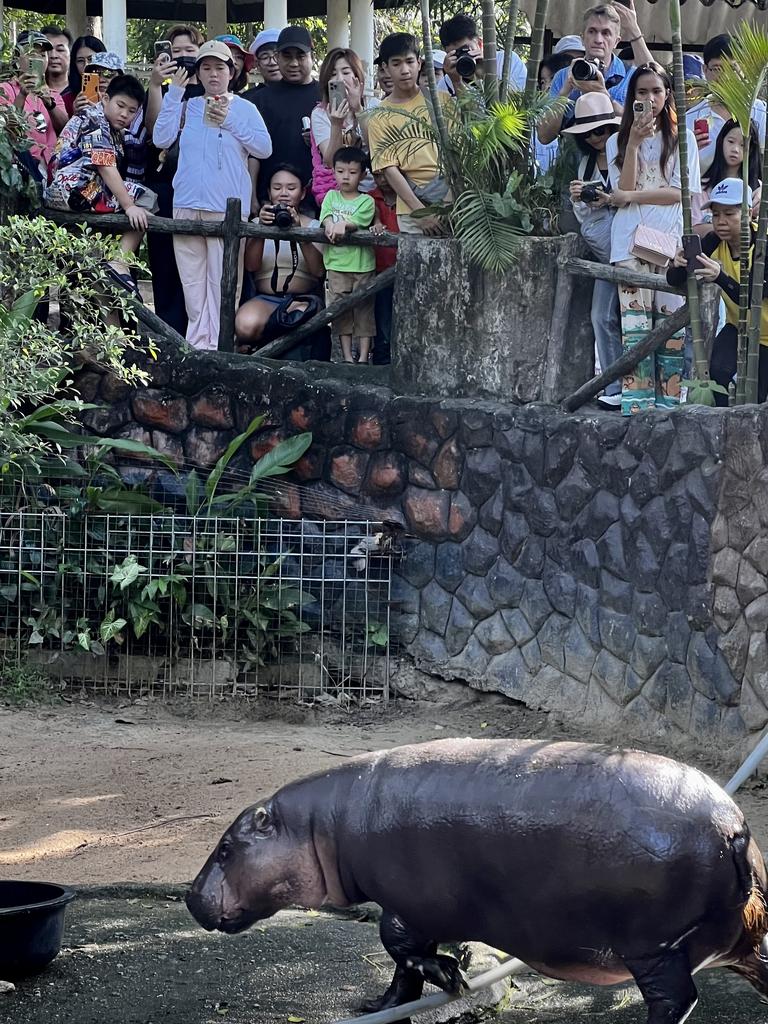
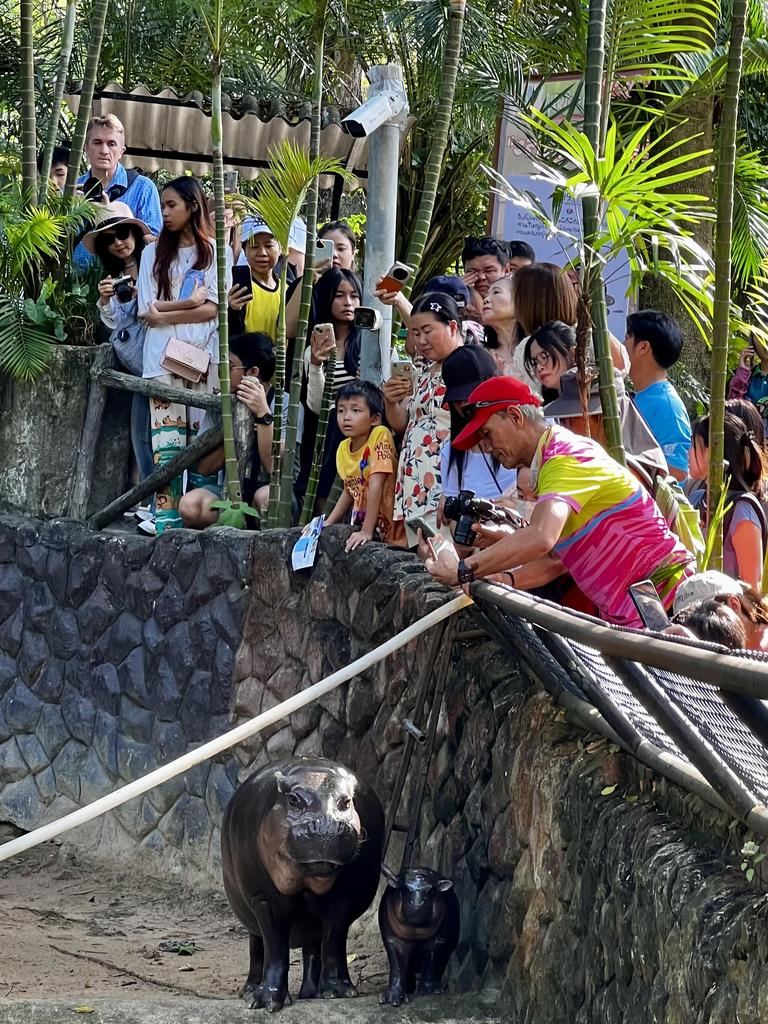
What is a pygmy hippo anyway?
Native to West Africa, the pygmy hippopotamus is rounder and much smaller in size than the common hippopotamus. They only weigh up to 275kg, whereas the common hippo weighs seven times that.
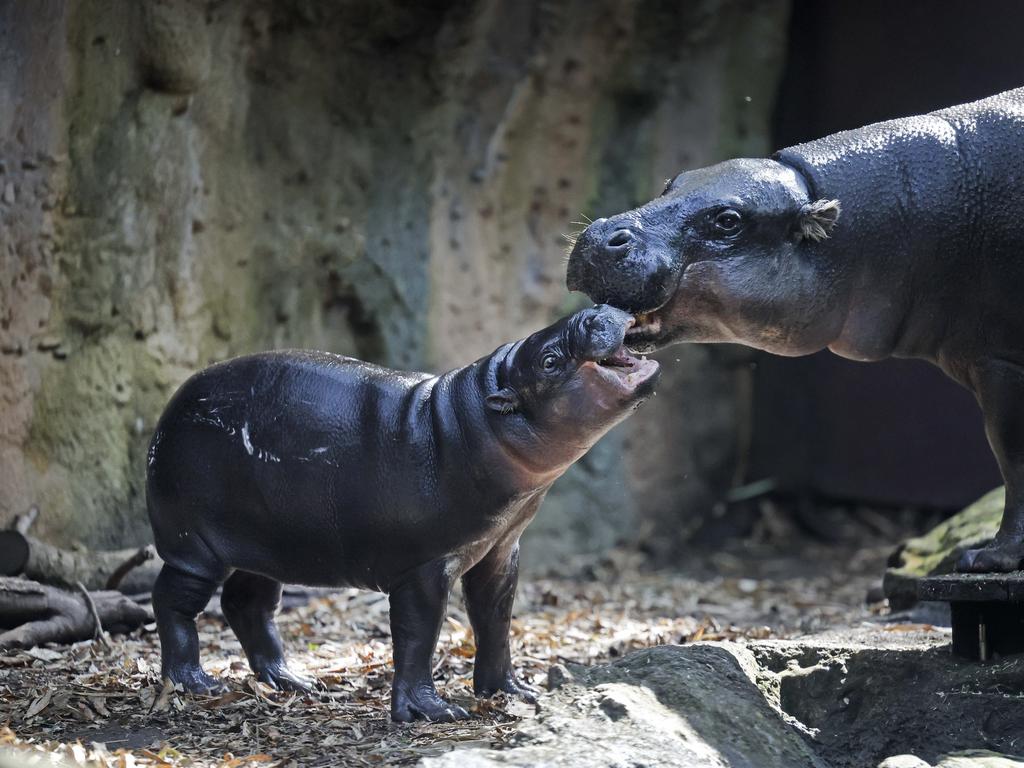
Although they do love water, pygmy hippos live on land in forests and swamps and are mainly nocturnal, which explains Moo Deng’s sleep routine.
What’s Moo Deng’s big secret?
AS soon as I arrived, I noted just how impossibly glossy her skin was — and there’s a good reason for that. Despite multiple beauty brands claiming to offer the secret to achieve Moo Deng’s dewy glow, the texture is not because of any skincare routine. In fact, her impressive glow is thanks to an oil called blood sweat — which is neither blood or sweat — but a natural secretion from her skin that acts as a sunblock and moisturiser.
This moisturiser also helps prevent skin infections and keeps her cool in her humid forest habitats.
The staggering price of Moo Deng’s fame
Moo Deng’s fame has been profitable for the zoo. From 1st September – 25th September, the zoo earned 19.2 million baht (over $865,000 AUD) from ticket sales, with no signs of slowing down.
Thailand’s tourism industry has a problematic past when it comes to animal welfare, with elephant rides and tiger selfies being a commonplace.
Khao Kheow Zoo hasn’t been without criticism, either. PETA Asia has slammed the zoo, saying that Moo Deng ‘faces a lifetime of confinement’ and is ‘deprived of her freedom.’
“There is nothing cute about a baby born into imprisonment! Moo Deng should’ve been born in the wild, not bred for human entertainment,” Jason Baker, PETA Senior Vice President said in a statement on X.
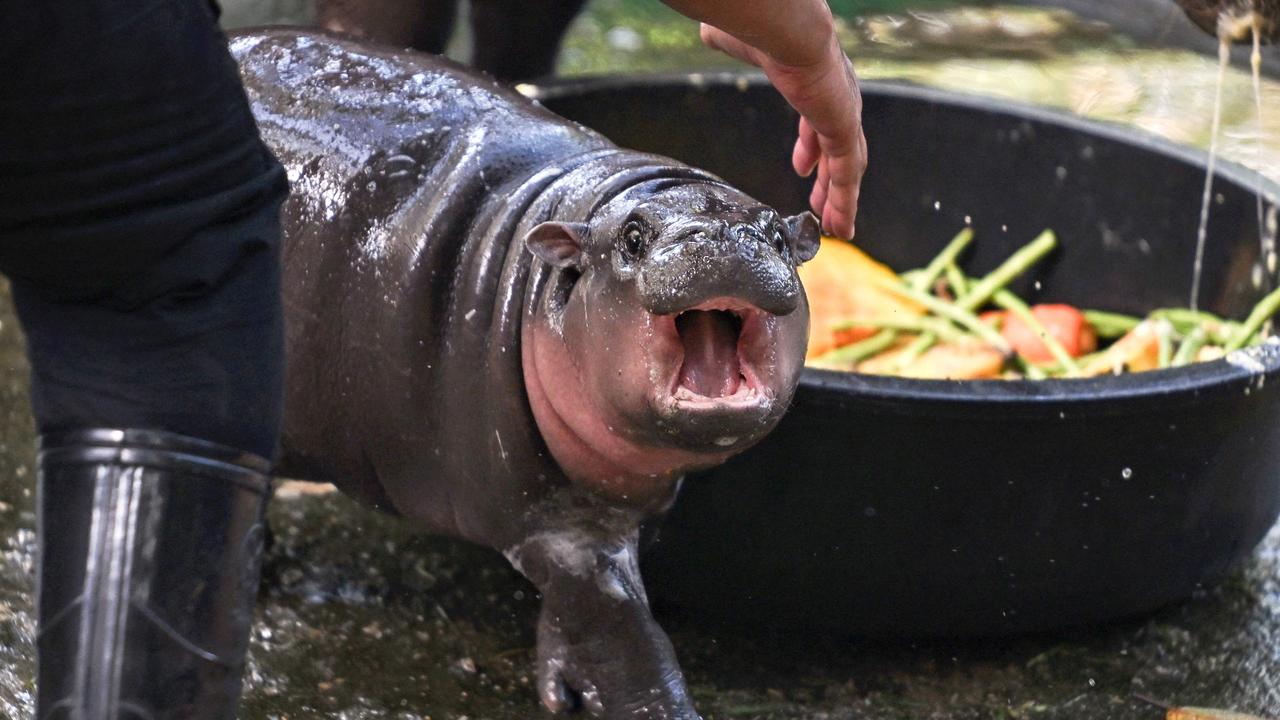
The sad truth about Moo Deng and pygmy hippos is that there are less than 2,500 left in the wild, mainly due to habitat loss, poaching, and human impact on their natural habitats.
Nicola Craddock of The Zoo and Aquarium Association, says there are benefits to keeping animals in zoos.
“Modern zoos and aquariums play an important role in their communities, giving people a unique chance to connect with wildlife in a safe, sustainable and animal-welfare focused setting. The personal connection that people are feeling towards Moo Deng, for example, can help to raise awareness and drive important conservation programs for pygmy hippos,” said Craddock.
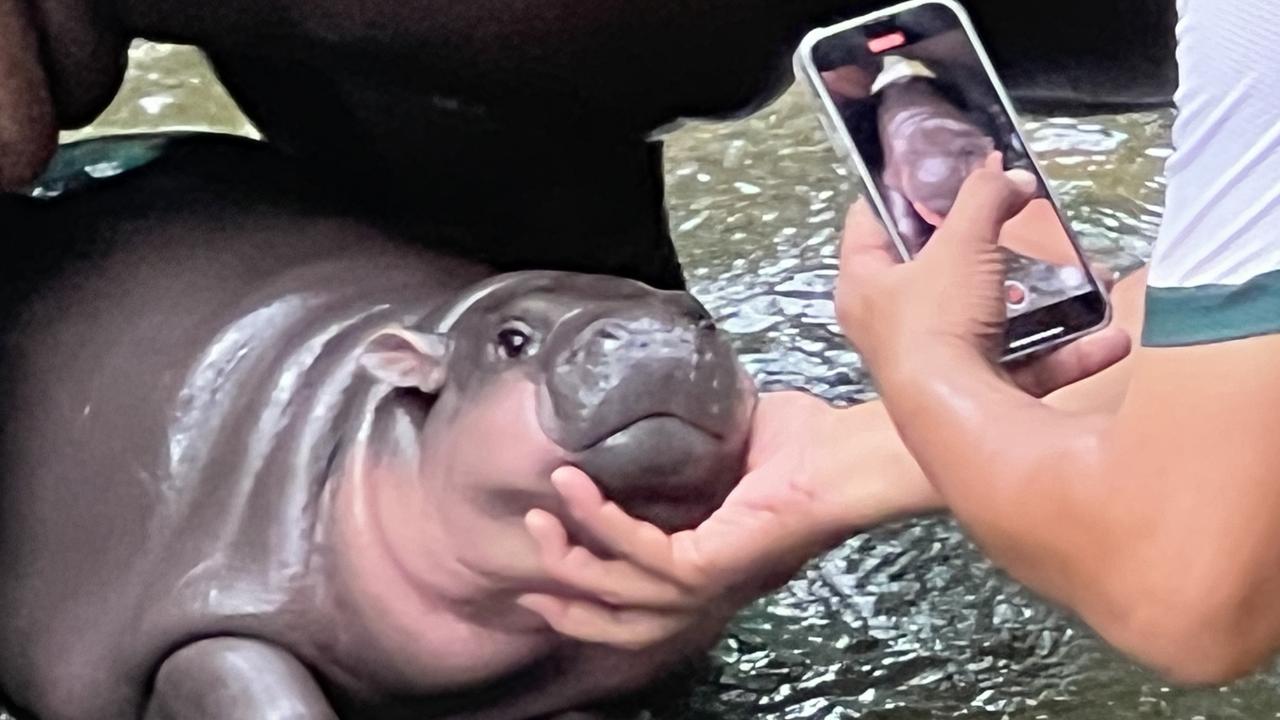
The Zoo and Aquarium Association coordinates the work of all zoos and aquariums in Australasia, including raising standards of animal welfare, supporting conservation efforts and driving community education.
Tips for visiting Moo Deng
The zoo is in Si Racha, Chonburi. I took a taxi from Bangkok, which cost about $80 AUD for the round-trip and took about an hour and a half each way.
I recommend getting there before the zoo opens at 8am. There’s a ticket office for foreign passport holders and entry will cost 350 baht - about $15 AUD.
Don’t go on a weekend. A recent weekend saw 20,000 visitors, with 5-minute viewing limits. I went on a Wednesday and had no problems seeing her.
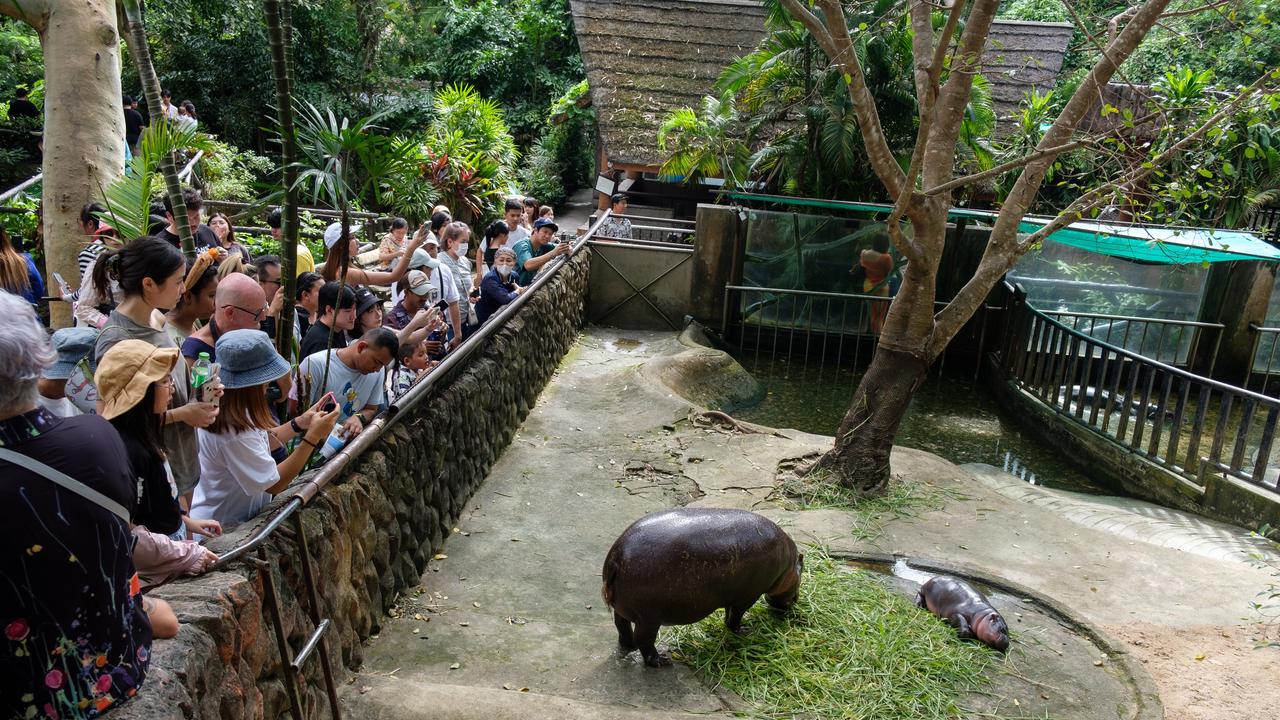
More Coverage
According to zookeepers, she is most active is around 9am and 2pm. She naps a lot but is consistently awake, active and up to her antics around this time.
Be truly present and put your phone away. You’ll be one of the only ones not watching her from behind a screen – which you can do anytime now thanks to her recently released 24/7 livestream.
If you can’t make it to Thailand, Taronga Zoo has their own baby pygmy hippo called Lololi, who is 10 months old and just as cute as Moo Deng. Her name is a West African name meaning ‘there is always love’.





